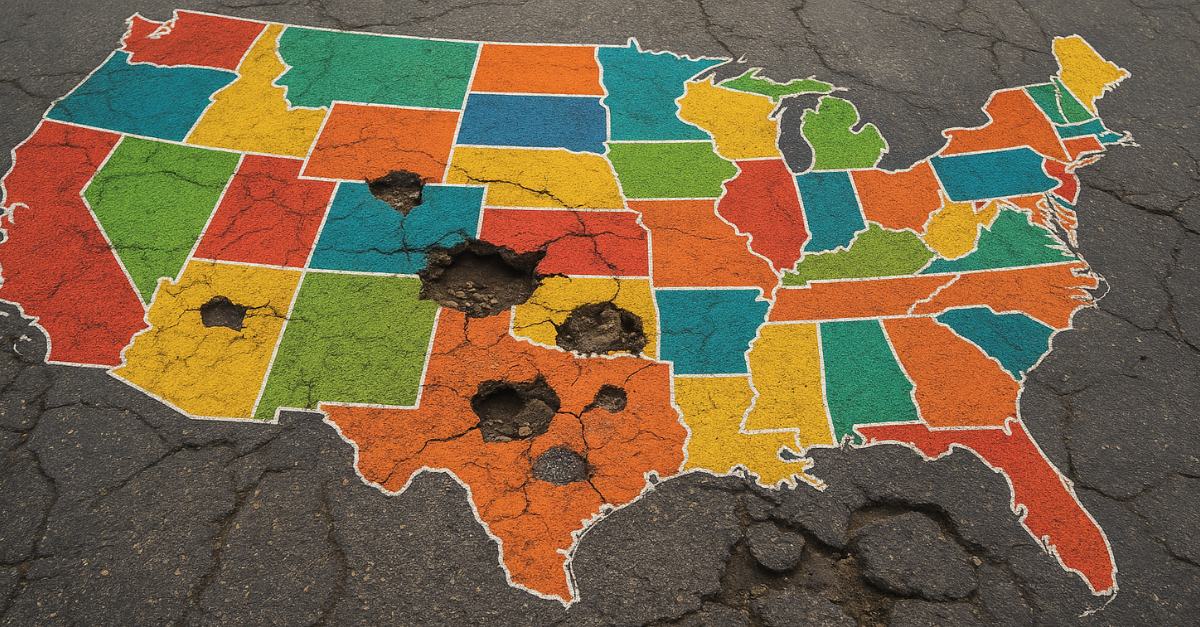Smart Packing
Packing for Europe sounds simple until you're sweating under a too-heavy coat in Rome or searching five shops for an adapter in Paris. Check out what's truly worth the weight.

Universal Travel Adapter With USB Ports
European countries don’t follow a single plug type, so a universal adapter is essential. Many include USB ports, letting you charge multiple devices with fewer bricks. It's a compact solution for staying connected across borders, especially when hotel outlets are scarce or oddly placed. One adapter handles the entire continent.
Multiple Pairs Of Jeans
Jeans are versatile but bulky. Bringing more than two pairs adds unnecessary weight and hogs suitcase space. They’re also slow to dry and not ideal for spontaneous laundry days. Stick with one dark and one light pair—they’ll match everything and last longer than you think on a multi-city trip.
Lightweight Waterproof Jacket
Weather in Europe can shift from sunny to stormy within hours. A lightweight, waterproof jacket provides protection without weighing down your daypack. It’s ideal for London’s drizzle and the Alps’ sudden showers. Breathable materials and a hood offer comfort and coverage from unpredictable skies.
Hair Dryer
European hotels and even hostels almost always provide a hair dryer. Bringing your own means lugging a heavy, fragile item that might not work with local voltage. Even with a converter, overheating is a risk. Skip it and save room for something more useful.
Crossbody Anti-Theft Bag
Big cities like Paris and Barcelona are infamous for pickpocketing. A crossbody anti-theft bag adds a layer of security while keeping essentials close. Look for RFID protection and slash-resistant straps. It's a stylish way to carry what you need without inviting unwanted attention in crowded tourist zones.
Full-Size Toiletries
TSA rules limit liquids, and full-size bottles take up too much room. Shampoo, conditioner, lotion, and body wash are usually available at hotels or easy to replace locally. Opt for reusable travel containers. You’ll lighten your load and avoid leaks that can ruin clothes before your trip even begins.
Travel Scarf Or Shawl
A scarf in Europe is a multitool. Use it as a shoulder cover in cathedrals or even a beach wrap. Lightweight and stylish, it adapts to local customs and keeps you prepared for unexpected settings or temperature changes, all while looking elegant.
Workout Equipment
You don’t need resistance bands or portable weights in your luggage. Hotel gyms and walking-heavy days offer more than enough movement. Save your suitcase space and adapt your routine. You’ll likely be too busy exploring to worry about squats in your hotel room anyway.
 Photo By: Kaboompics.com, Pexels
Photo By: Kaboompics.com, Pexels
Comfortable Walking Shoes
Walking is the heart of European travel—across cobblestones and ancient ruins. A dependable pair of walking shoes cushions your feet and supports your posture. Choose something versatile that pairs well with casual and smart outfits. Good shoes mean more sightseeing and less downtime from sore arches.
Pillows Or Travel Blankets
Airlines and hotels usually provide pillows and blankets. Bringing your own adds bulk and offers little added comfort. Unless you have a specific medical need, skip them. A travel scarf or compact neck pillow does the job without sacrificing precious space you’ll want for practical items or souvenirs.
Travel Insurance Documents
Emergencies don’t wait for good timing. Travel insurance helps cover trip cancellations and medical expenses—and some European countries require it for entry. Always bring printed and digital copies of your policy. It’s the document you hope not to use, but you absolutely need it if something goes wrong.
Heavy Camera Gear
Unless photography is your main purpose, DSLR cameras and multiple lenses aren’t worth the weight. Today’s smartphones produce excellent photos with powerful editing tools. Lugging gear becomes exhausting and often goes unused. If you're not a pro, you’ll likely regret bringing something so fragile and bulky.
Reusable Water Bottle With Filter
Tap water is safe in most European countries, but having a built-in filter adds peace of mind, especially in remote areas or train stations. A reusable bottle also helps you avoid pricey bottled water and unnecessary plastic waste. It’s a smart, eco-friendly way to stay hydrated while exploring new cities.
Specialty Kitchen Gadgets
Even if you love your travel coffee maker or portable blender, they’re impractical in Europe. Hotel rooms rarely support their use, and voltage differences can cause malfunctions. Local cafes and bakeries offer better flavor and cultural experiences anyway. Enjoy what’s available and skip gadgets that take up space and weight.
 Asecretfanfare, Wikimedia Commons
Asecretfanfare, Wikimedia Commons
Packable Daypack
When day trips call for snacks or souvenirs, a lightweight daypack becomes your best friend. Foldable and space-saving, it fits inside your main luggage until needed. It’s perfect for markets and hikes—keeping your hands free and essentials organized without lugging around your full suitcase.
International Checks Or Traveler’s Checks
These are outdated and inconvenient. Most banks no longer accept traveler’s checks, and using them wastes valuable time. Bank cards with no foreign transaction fees are safer and faster. Modern banking tools make paper checks completely unnecessary, and you can keep a small amount of local cash just in case.
Travel-Size Toiletry Kit
Not all accommodations provide full toiletries, and airline liquid restrictions complicate things further. A compact, TSA-compliant kit stocked with your preferred essentials ensures you're never caught off guard. Fill it with shampoo, toothpaste, moisturizer, and a small deodorant. It’s your backup plan when hotel offerings fall short or vary by country.
Travel Iron Or Steamer
Wrinkled clothes are annoying, but travel irons and steamers aren’t the solution. They’re bulky and rarely justify the effort. Instead, choose wrinkle-resistant fabrics or use the “steam trick” with a hotel shower. Some accommodations provide irons anyway.
 Photo By: Kaboompics.com, Pexels
Photo By: Kaboompics.com, Pexels
Travel-Sized Laundry Detergent Sheets
For longer trips or carry-on-only travelers, these space-saving sheets are a lifesaver. Just add water—no mess, no bulk. Wash clothes in your hotel sink and extend wear time for your outfits. Especially useful in rural areas or when laundromats aren’t nearby, they keep your wardrobe fresh and packing light.
Full-Size Towel
Hotels and rentals nearly always provide towels. Bringing your own full-size version takes up a huge portion of your bag and dries slowly. If you truly need one for beach days or hostels, opt for a compact microfiber travel towel. It packs smaller and dries faster.
Backup Credit Card And Currency Pouch
Some shops and restaurants in Europe still operate on a cash-only basis. A separate pouch with backup cards and local currency adds security if your wallet’s lost or compromised. Storing it separately from your main valuables ensures you’re not stranded without funds when traveling between countries or cities.
Books
Even one or two paperbacks can add unexpected weight. Most travelers don’t read as much as they plan to on the go. An e-reader or reading app lets you bring dozens of titles in the space of one phone. You’ll lighten your load and have more flexibility in your downtime.
Train And Transit Passes
If your trip includes multiple cities or countries, buying regional train or city transit passes in advance can save both time and money. Eurail and Interrail cards often offer unlimited rides and skip-the-line perks. They streamline travel days and reduce stress at busy stations or unfamiliar stops.
 Marek Slusarczyk, Wikimedia Commons
Marek Slusarczyk, Wikimedia Commons
Umbrella Hat Or Poncho
These items seem clever, but they rarely hold up against real weather. Umbrella hats feel awkward in cities, and ponchos offer minimal comfort or coverage. A compact umbrella or waterproof jacket does a better job. You'll stay dry without drawing attention or struggling with noisy, flimsy plastic in the wind.
Copy Of Passport And ID
Losing your passport abroad can derail your trip. Having photocopies, both printed and digital, makes replacing it easier. It also speeds up ID checks at hotels or transport hubs. Store copies in a separate bag or secure app for backup access in emergencies without risking the original document.
 Global Residence Index, Unsplash
Global Residence Index, Unsplash
Gifts For Every Host Or Acquaintance
While thoughtful, packing multiple gifts “just in case” takes up valuable space and adds stress. Cultural expectations around gift-giving vary, and simple gestures—like a handwritten postcard or shared meal—mean more. Save the suitcase room and focus on meaningful experiences rather than objects your hosts may not even expect.
Refillable Shopping Bag
Plastic bags aren’t free in many European countries. A foldable, reusable shopping bag helps you avoid extra charges and carry souvenirs or farmers’ market finds with ease. It tucks easily into your daypack and proves useful almost daily, especially in walkable cities where impulse shopping is part of the charm.
Travel Sewing Kit
Unless you're traveling for a wedding or business, a sewing kit is rarely used. Small repairs can usually wait, and many hotels or hosts have sewing supplies if needed. If you're concerned, a couple of safety pins and travel tape do the trick without taking up extra pouch space.
Portable Power Bank
Running out of phone battery while exploring a new city is a safety risk. A lightweight, high-capacity power bank keeps you connected to maps and emergency contacts. Choose one with multiple ports if traveling with others or charging multiple devices on long transport days.
Scented Candles Or Air Fresheners
These might make hotel rooms feel like home, but they’re breakable and unnecessary. European accommodations typically keep spaces clean and neutral. If you need a calming scent, try a travel-sized essential oil roller instead. Candles also risk setting off smoke alarms.
Personal Medications And Travel First Aid Kit
Foreign pharmacies might not stock your exact prescription or dosage. Always bring essential medications in original packaging, along with a compact first aid kit. Include items like motion sickness tablets, pain relievers, anti-itch cream, and blister patches. It’s a small pouch that saves time and discomfort when issues arise unexpectedly.
Extra Purses Or Handbags
You might think you need a purse for each outfit, but one crossbody bag and one collapsible tote cover all scenarios. Extra handbags take up space and rarely get used. Choose versatile, secure designs and leave the rotating fashion accessories for trips that don’t involve cobblestones.
Language App Or Phrasebook
While English is widely spoken, learning key phrases in local languages improves your experience. A translation app with offline mode or a pocket phrasebook helps with menus and polite conversation. Locals will appreciate the effort, and this gesture opens doors in smaller towns where English isn’t the default.
 Victor Korniyenko, Wikimedia Commons
Victor Korniyenko, Wikimedia Commons
Bulky Travel Mugs Or Thermoses
Hot drink lovers may bring oversized travel mugs hoping to sip coffee while sightseeing. But Europe’s cafe culture revolves around sipping in place, not on the go. These containers are heavy and hard to clean. A collapsible cup or just sitting down at a local spot is more practical.
Dressy Outfit For A Night Out
Many restaurants or events in Europe have dress codes or an unspoken standard of attire. One wrinkle-resistant, versatile outfit lets you enjoy a fancier evening without feeling out of place. It doesn’t have to be formal—just polished enough to blend into a chic setting without packing a tuxedo.
Printed Boarding Passes For Every Leg
It might feel safer to print every boarding pass ahead of time, especially for connecting flights or train segments. But most European airlines, trains, and buses now accept mobile tickets. Pre-printed copies become cluttered quickly and outdated with schedule changes. Digital versions are easier to update and store securely.
 Alan Levine from Mortlach, Canada, Wikimedia Commons
Alan Levine from Mortlach, Canada, Wikimedia Commons
Travel-Friendly Snacks
Late check-ins and closed restaurants can leave you hungry at inconvenient times. A small stash of protein bars or dried fruit keeps you energized between meals. It’s especially useful in rural areas or after long travel days when food options are limited or unpredictable.
Full-Size Notebook Or Journal
Writers and planners sometimes pack large journals to document every moment. But the reality of travel often limits the time and energy to write. A small notebook or notes app is far more practical for quick entries. Heavy journals are rarely filled and just add weight that you won’t appreciate them mid-trip.
Travel Guide App Or Offline Map
Roaming signals can disappear fast in the countryside or underground metros. A pre-downloaded guide app or offline map keeps you on track without depending on Wi-Fi. These tools help you find points of interest and routes without draining data.
Stack Of Foreign Currency From Home
Many travelers exchange large amounts of foreign cash before departure, fearing high ATM fees. But airport rates are often worse, and carrying too much cash is risky. European ATMs are widespread, and cards with no foreign transaction fees are safer. One small amount of local currency is all you need upfront.
Portable Luggage Scale
Airlines across Europe enforce strict baggage limits, especially on budget carriers. A portable luggage scale lets you check your bag’s weight before heading to the airport. It prevents costly overweight fees and eliminates guesswork when packing souvenirs. Small enough to store in a side pocket, it’s peace of mind.
Noise-Canceling Headphones
Do crying babies on transatlantic flights and the roar of high-speed trains bother you? Ambient noise can ruin your focus or rest, but noise-canceling headphones reduce stress and enhance comfort. They’re especially useful for light sleepers or travelers who want to unwind with podcasts or meditation apps.
Foldable Travel Clothesline
It’s marketed as a must-have for hand-washers, but most European accommodations don’t allow hanging laundry in rooms, and many have heated towel racks or radiators. The clothesline gets tangled or simply never used, even on longer stays.
 Photo By: Kaboompics.com, Pexels
Photo By: Kaboompics.com, Pexels
TSA-Approved Lock
Shared accommodations and long travel days mean your bag won’t always be by your side. A TSA-approved lock secures your luggage while allowing airport security access if needed. It deters casual tampering and gives you extra confidence, whether stowing a backpack in a hostel locker or checking a suitcase.











































